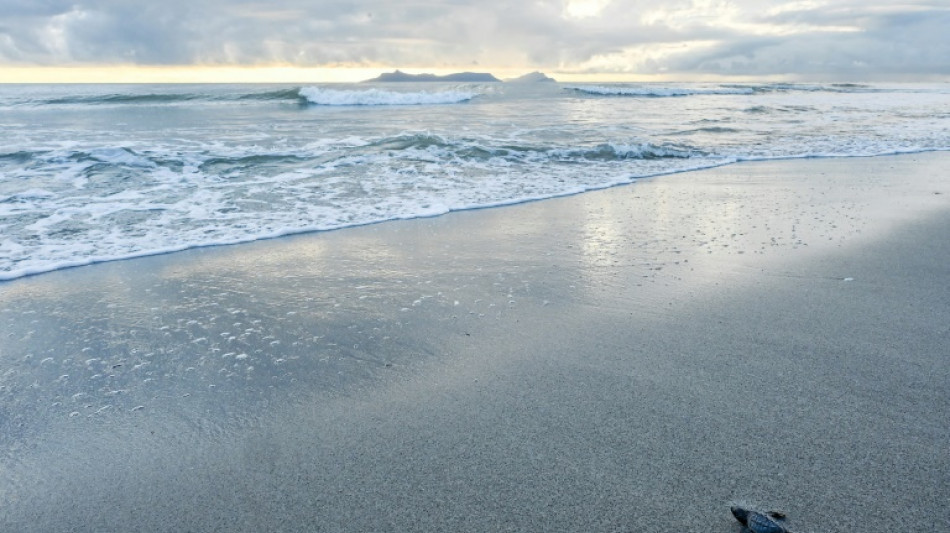
-
 Julio Iglesias, the Spanish crooner who won global audience
Julio Iglesias, the Spanish crooner who won global audience
-
'We can't make ends meet': civil servants protest in Ankara

-
 UK prosecutors appeal Kneecap rapper terror charge dismissal
UK prosecutors appeal Kneecap rapper terror charge dismissal
-
UK police chief blames AI for error in evidence over Maccabi fan ban

-
 Oil prices extend gains on Iran unrest
Oil prices extend gains on Iran unrest
-
France bans 10 UK far-right activists over anti-migrant actions
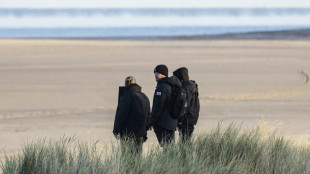
-
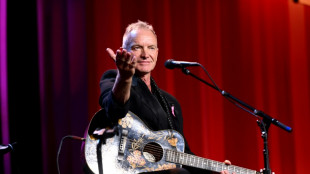 Every cent you take: Sting, ex-Police band mates in royalty battle
Every cent you take: Sting, ex-Police band mates in royalty battle
-
Thailand crane collapses onto train, killing 32

-
 Amateur stuns star-studded field to win 'One Point Slam' in Melbourne
Amateur stuns star-studded field to win 'One Point Slam' in Melbourne
-
Italian influencer Ferragni awaits verdict in Christmas cake fraud trial

-
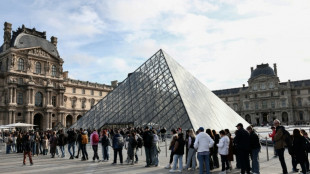 Louvre and other French museums fare hikes for non-European visitors
Louvre and other French museums fare hikes for non-European visitors
-
Japan's Takaichi to dissolve parliament for snap election

-
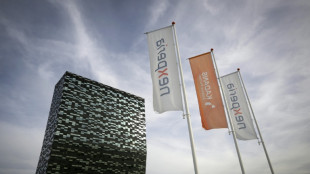 Dutch court hears battle over Nexperia
Dutch court hears battle over Nexperia
-
World-first ice archive to guard secrets of melting glaciers
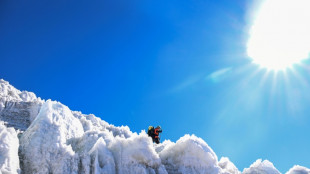
-
 Ted Huffman, the New Yorker aiming to update top French opera festival
Ted Huffman, the New Yorker aiming to update top French opera festival
-
Ofner celebrates early then loses in Australian Open qualifying
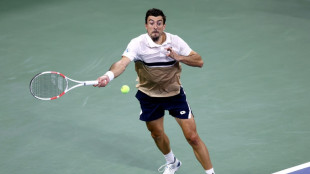
-
 Singer Julio Iglesias accused of 'human trafficking' by former staff
Singer Julio Iglesias accused of 'human trafficking' by former staff
-
Luxury retailer Saks Global files for bankruptcy
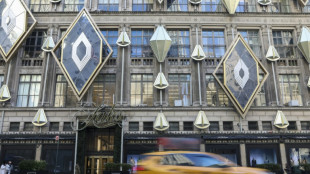
-
 Asian markets mostly up with politics bump for Tokyo
Asian markets mostly up with politics bump for Tokyo
-
Iran vows fast trials over protests after Trump threat

-
 China's trade surplus hit record $1.2 trillion in 2025
China's trade surplus hit record $1.2 trillion in 2025
-
Trail goes cold in UK abandoned babies mystery
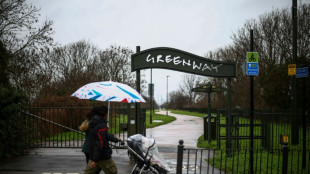
-
 Japan's Takaichi set to call February snap election: media
Japan's Takaichi set to call February snap election: media
-
Scientist wins 'Environment Nobel' for shedding light on hidden fungal networks
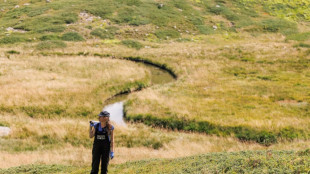
-
 From bricklayer to record-breaker: Brentford's Thiago eyes World Cup berth
From bricklayer to record-breaker: Brentford's Thiago eyes World Cup berth
-
Keys overcomes serve demons to win latest Australian Open warm-up

-
 As world burns, India's Amitav Ghosh writes for the future
As world burns, India's Amitav Ghosh writes for the future
-
Actor Kiefer Sutherland arrested for assaulting ride-share driver

-
 Gilgeous-Alexander shines as Thunder halt Spurs losing streak
Gilgeous-Alexander shines as Thunder halt Spurs losing streak
-
West Bank Bedouin community driven out by Israeli settler violence
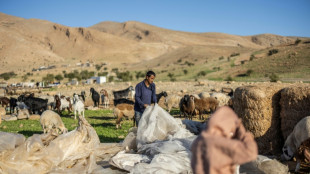
-
 Asian markets mixed, Tokyo up on election speculation
Asian markets mixed, Tokyo up on election speculation
-
US official says Venezuela freeing Americans in 'important step'
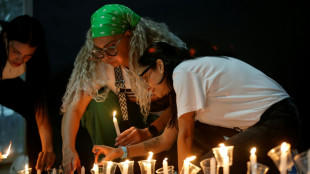
-
 2025 was third hottest year on record: EU, US experts
2025 was third hottest year on record: EU, US experts
-
Japan, South Korea leaders drum up viral moment with K-pop jam

-
 LA28 organizers promise 'affordable' Olympics tickets
LA28 organizers promise 'affordable' Olympics tickets
-
K-pop heartthrobs BTS to kick off world tour in April

-
 Danish foreign minister heads to White House for high-stakes Greenland talks
Danish foreign minister heads to White House for high-stakes Greenland talks
-
US allows Nvidia to send advanced AI chips to China with restrictions
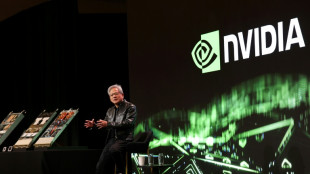
-
 Sinner in way as Alcaraz targets career Grand Slam in Australia
Sinner in way as Alcaraz targets career Grand Slam in Australia
-
Rahm, Dechambeau, Smith snub PGA Tour offer to stay with LIV

-
 K-pop heartthrobs BTS to begin world tour from April
K-pop heartthrobs BTS to begin world tour from April
-
Boeing annual orders top Airbus for first time since 2018

-
 US to take three-quarter stake in Armenia corridor
US to take three-quarter stake in Armenia corridor
-
Semenyo an instant hit as Man City close on League Cup final

-
 Trump warns of 'very strong action' if Iran hangs protesters
Trump warns of 'very strong action' if Iran hangs protesters
-
Marseille put nine past sixth-tier Bayeux in French Cup

-
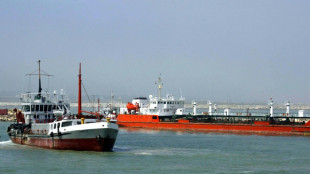 US stocks retreat from records as oil prices jump
US stocks retreat from records as oil prices jump
-
Dortmund outclass Bremen to tighten grip on second spot

-
 Shiffrin reasserts slalom domination ahead of Olympics with Flachau win
Shiffrin reasserts slalom domination ahead of Olympics with Flachau win
-
Fear vies with sorrow at funeral for Venezuelan political prisoner


Battle to save Panama turtle at center of aphrodisiac superstition
The sea turtles of Punta Chame, a peninsula of Panama that juts into the Pacific Ocean, face an existential threat similar to the rhino and pangolin: human superstition.
The eggs of the protected olive ridley turtle, illegally harvested from the beach, are sold door to door in town for 75 cents to $1 each for their purported aphrodisiac qualities.
"Especially men think that by eating turtle eggs they will have more sexual pleasure," said Jorge Padilla, a conservationist with the NGO Fundacion Tortuguias which collects and hatches the precious eggs.
"The eggs won't help you. They are not an aphrodisiac," he insisted.
The olive ridley (Lepidochelys olivacea) is listed as "vulnerable" on the Red List of the International Union for Conservation of Nature, with its numbers declining.
Its survival relies heavily on people like Padilla, who with village volunteers collect freshly laid eggs and bury them in sand at the nursery.
Hundreds hatch here each year between July and February. Within hours they are brought to the beach and released near the water's edge by volunteers who look on with parent-like pride as the tiny critters make a frantic dash for the ocean.
"We cannot just put them (in the water) because they have to go through a process called 'imprinting' (along the beach) that will bring them back in 18-20 years to the same beach where they were born" to lay their own eggs.
- Used for combs, clothes -
Day and night, Padilla patrols the beach to scare off poachers.
Other threats include stray dogs roaming the beaches for food, and eagles.
Padilla repels the dogs but leaves the eagles as they are natural turtle predators and part of the circle of life.
The turtles also end up as by-catch from fishing, and face threats to their nesting beaches from human encroachment and climate change.
"There are many threats to sea turtles, both in the Pacific and in the Caribbean: illegal egg harvesting, overconsumption of their meat, their shells... They are used for combs... clothing," said Padilla.
Marine turtles and their uncertain fate are on the agenda of a global wildlife summit taking place in Panama City, not far from Punta Chame with its 500 human inhabitants.
The gathering of countries under the Convention on International Trade in Endangered Species of Wild Fauna and Flora (CITES) will consider ways to combat egg theft and trafficking.
A working document on the CITES website states "the illegal harvest and trade continues to threaten marine turtles."
K.Hassan--SF-PST




